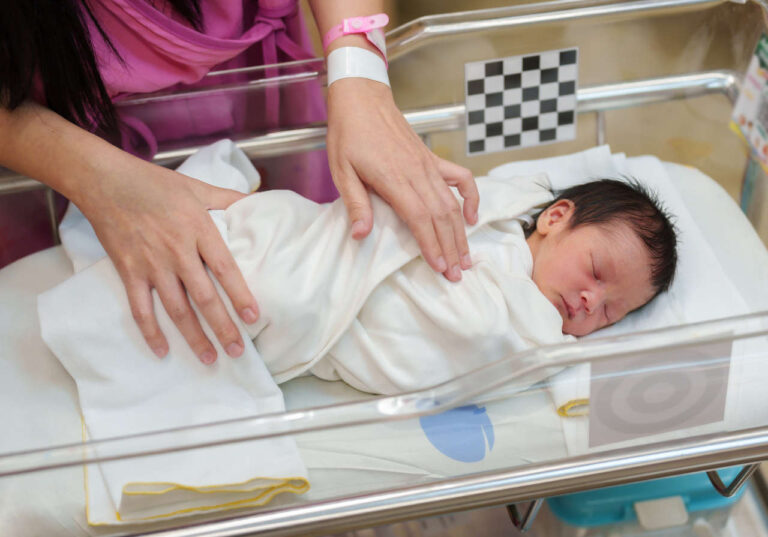
El embarazo es un período feliz y emocionante para muchas mujeres, pero a veces puede generar inquietudes e incertidumbres, especialmente para aquellas con un perfil inmunológico atípico u otras complicaciones médicas. Desafortunadamente, estas complicaciones suelen provocar la pérdida del embarazo o un aborto espontáneo.
Consulte a un especialista en IgIV
La mejor infusión de IgIV en casa | Obtenga asistencia para el tratamiento con IgIVLas investigaciones muestran que La terapia con inmunoglobulina intravenosa (IVIG) favorece un embarazo saludable y reduce las complicaciones relacionadas con el embarazo en las mujeres. Además, diversos estudios han demostrado los efectos beneficiosos de la terapia con IgIV para mejorar los resultados del embarazo en mujeres con enfermedades autoinmunes.
Este artículo tiene como objetivo brindar información a las mujeres embarazadas que han enfrentado complicaciones relacionadas con el embarazo debido a su perfil inmunológico anormal o una condición autoinmune. Abordará el papel de IgIV durante el embarazo y brindar detalles importantes para quienes están considerando o actualmente están en proceso de Tratamiento con IgIV Durante el embarazo.
Antes de abordar los puntos anteriores, es importante que comprenda completamente por qué su sistema inmunológico es importante durante el embarazo y cómo apoya el embarazo.
¿Cómo apoya el sistema inmunológico al embarazo?
Durante el embarazo, el sistema inmunitario de la mujer embarazada experimenta adaptaciones fascinantes para evitar el rechazo del feto, lo que le permite crecer. La transformación temporal del sistema inmunitario para apoyar al feto en desarrollo y mantener la salud general de la madre se produce de las siguientes maneras:
Proporcionar tolerancia inmunológica
El sistema inmunitario proporciona tolerancia inmunológica temporal a un feto que solo tiene una compatibilidad genética parcial con la madre. Dado que el feto porta antígenos del padre, el sistema inmunitario previene su respuesta contra el feto mediante la producción de células inmunitarias especializadas llamadas células T reguladorasEstas células ayudan a establecer esta tolerancia y a suprimir las respuestas inmunitarias potencialmente dañinas contra el feto. De esta manera, aumenta la supervivencia del embrión en el útero, a la vez que disminuye el riesgo de aborto espontáneo.
Un cambio en el equilibrio de las células inmunitarias
Durante el embarazo, se produce un cambio significativo en el equilibrio de las células inmunitarias. Por ejemplo, se observa una disminución de ciertas células inmunitarias que pueden promover respuestas inflamatorias, como las células Th1. Por otro lado, se observa un aumento de otros subgrupos de células inmunitarias, como las células Th2 y los linfocitos T reguladores, que participan en la regulación inmunitaria y contribuyen al mantenimiento del embarazo.
Mantener la tolerancia inmunitaria mediante cambios hormonales
El nivel de progesterona y estrógeno aumenta ya que estas hormonas tienen efectos inmunosupresores y ayudan a mantener la tolerancia inmunológica y prevenir el rechazo inmunológico del feto.
Estimulación de la respuesta inmunitaria local a la interfaz materno-fetal
La interfaz entre la madre y el feto, conocida como interfaz materno-fetal, es un sitio activo de regulación inmunitaria. Las células inmunitarias, como los macrófagos y las células dendríticas, desempeñan un papel crucial en esta región entre la placenta y el útero, promoviendo la remodelación tisular y el desarrollo fetal, a la vez que limitan la activación inmunitaria.
Además, ciertas células inmunes, particularmente aquellas involucradas en la inmunidad de las mucosas, están presentes para proteger a la madre y al feto en desarrollo de los patógenos, apoyando al mismo tiempo el crecimiento fetal.
Adaptaciones en el entorno uterino
El sistema inmunitario también desempeña un papel fundamental en la configuración del entorno uterino para favorecer el embarazo. Células inmunitarias especializadas, como células asesinas naturales uterinas (uNK), Experimentan cambios en número y función durante el embarazo. Estas células contribuyen a la remodelación vascular, el crecimiento tisular y el establecimiento de un entorno receptivo para la implantación y el desarrollo placentario.
Estos mecanismos inmunitarios transformadores garantizan un embarazo exitoso. Sin embargo, la alteración de la tolerancia inmunitaria o la desregulación pueden contribuir a complicaciones del embarazo.
En algunos casos, las mujeres embarazadas con perfiles inmunitarios anormales o enfermedades autoinmunes suelen sufrir abortos espontáneos repetidos. Para evitar estas complicaciones, se realizan intervenciones como Terapia con IgIV Los proveedores de atención médica consideran que estos tratamientos abordan los desafíos relacionados con el sistema inmunitario y promueven un embarazo saludable.
Veamos cómo la IgIV favorece el embarazo y reduce el riesgo de complicaciones relacionadas con el embarazo en mujeres con trastornos autoinmunes.
Obtenga asistencia para el copago de IgIV
Habla con un especialistaPapel de la IgIV en las complicaciones relacionadas con el embarazo

La terapia con IgIV (inmunoglobulina intravenosa) puede ser importante durante el embarazo al abordar factores inmunitarios que pueden contribuir a complicaciones gestacionales o dificultades para la concepción. La IgIV se suele recomendar para favorecer un embarazo saludable en mujeres con pérdida recurrente del embarazo (RPL), trastornos autoinmunes e incompatibilidad Rh.
IgIV y pérdida recurrente del embarazo (RPL)
La pérdida recurrente del embarazo se refiere a la ocurrencia de dos o más abortos espontáneos o pérdidas de embarazo consecutivas. Aproximadamente 2% – 5% en edad reproductiva Las mujeres sufren abortos espontáneos recurrentes, y hasta la mitad de ellos se deben a una causa desconocida. En algunos casos, la RPL se asocia con anomalías del sistema inmunitario o autoinmunidad. En este tipo de RPL, los autoanticuerpos antifosfolípidos (AAF) presentes en la madre afectan el desarrollo del feto y la placenta.
Además, un desequilibrio en las células inmunes con un mayor número de células Th1, células NK y células T reguladoras aberrantes también causa pérdida del embarazo.
La terapia con IgIV se ha explorado como una posible opción de tratamiento para estos casos específicos. La terapia con IgIV suprime la activación inmunitaria excesiva y la actividad de los autoanticuerpos. También ayuda. Mejorar las posibilidades de un embarazo exitoso y reducir el riesgo de futuras pérdidas de embarazo..
IgIV y trastornos inmunomediados
La terapia con IgIV también es beneficiosa para ciertas mujeres embarazadas con trastornos inmunitarios, como lupus eritematoso sistémico (LES), síndrome antifosfolípido (SAF) o trombocitopenia inmunitaria (PTI). Dado que estas afecciones pueden suponer riesgos tanto para la madre como para el feto, se recomienda la terapia con IgIV como parte del plan de tratamiento para controlar estos trastornos inmunitarios durante el embarazo.
La IgIV ayuda a suprimir las respuestas autoinmunes, reduce la inflamación y estabiliza el sistema inmunitario. Sus efectos inmunosupresores pueden mejorar los resultados del embarazo y reducir el riesgo de complicaciones.
Incompatibilidad Rh y IVIG
La incompatibilidad Rh ocurre cuando una madre tiene sangre Rh negativa mientras que su bebé tiene sangre Rh positiva. En este caso, el sistema inmunitario de la madre puede producir anticuerpos contra el factor Rh, lo que podría causar daño al bebé. La inmunoglobulina intravenosa (IVIG) puede utilizarse como medida preventiva para suprimir la respuesta inmunitaria de la madre y prevenir la producción de anticuerpos Rh. Esta intervención tiene como objetivo proteger al bebé de daños y reducir el riesgo de complicaciones asociadas con la incompatibilidad Rh.
Conclusión
La terapia con IgIV puede ser una opción terapéutica valiosa para apoyar el embarazo en mujeres con afecciones inmunológicas específicas. Esta terapia ofrece esperanza a las mujeres que han sufrido abortos espontáneos recurrentes o padecen trastornos inmunomediados. Al mantener conversaciones abiertas y exhaustivas con los profesionales de la salud, las mujeres pueden tomar decisiones informadas y recibir atención individualizada que maximiza las probabilidades de un embarazo exitoso y el nacimiento de un bebé sano.
REFERENCIAS:
- Habets, DH, Pelzner, K., Wieten, L., Spaanderman, ME, Villamor, E. y Al-Nasiry, S. (2022). Las inmunoglobulinas intravenosas mejoran la tasa de nacidos vivos en mujeres con enfermedades inmunitarias subyacentes y abortos espontáneos recurrentes: Una revisión sistemática y un metanálisis. Alergia, asma e inmunología clínica, 18(1), 23. https://doi.org/10.1186/s13223-022-00660-8
- D'Mello, RJ, Hsu, CD, Chaiworapongsa, P. y Chaiworapongsa, T. (2021). Actualización sobre el uso de inmunoglobulina intravenosa durante el embarazo. NeoReviews, 22(1), e7-e24. https://doi.org/10.1542/neo.22-1-e7
- Perricone, R., De Carolis, C., Kröegler, B., Greco, E., Giacomelli, R., Cipriani, P., Fontana, L. y Perricone, C. (2008). Terapia con inmunoglobulina intravenosa en pacientes embarazadas con lupus eritematoso sistémico y aborto espontáneo recurrente. Reumatología, 47(5), 646-651. https://doi.org/10.1093/rheumatology/ken046
- Mitsui, J., Ota, K., Takayanagi, Y., Nako, Y., Tajima, M., Fukui, A. y Kawai, K. (2023). Embarazo y parto a término exitosos tras terapia con inmunoglobulina intravenosa y heparina para la pérdida recurrente del embarazo sin causa aparente con sospecha de anomalías inmunológicas: Informe de un caso y una breve revisión bibliográfica. Revista de Medicina Clínica, 12(4), 1250. https://doi.org/10.3390/jcm12041250
- Yamada, H., Takeda, M., Maezawa, Y., Ebina, Y., Hazama, R., Tanimura, K., … y Shimada, S. (2012). Terapia con inmunoglobulina intravenosa de dosis alta para mujeres con cuatro o más abortos espontáneos recurrentes. Avisos de investigación académica internacional, 2012. https://doi.org/10.5402/2012/512732
- Yang, X., y Meng, T. (2020). ¿Tiene la inmunoglobulina intravenosa un papel en la pérdida recurrente del embarazo por causas inmunológicas? Revista de investigación en inmunología, 2020. https://doi.org/10.1155/2020/6672865
- Diejomaoh, MF, Bello, Z., Al Jassar, W., Jirous, J., Karunakaran, K. y Mohammed, AT (2015). Embarazos consecutivos exitosos tras la terapia con inmunoglobulina intravenosa en una paciente con aborto espontáneo recurrente. Revista internacional de informes de casos médicos, 337-344. https://doi.org/10.2147/IMCRJ.S93159
- Kwak-Kim, J., Kim, JW, y Gilman-Sachs, A. (2006). Inmunología y abortos espontáneos: HLA, autoanticuerpos e inmunidad celular. Inmunología del embarazo, 303-315. https://www.ncbi.nlm.nih.gov/books/NBK661













